The precipitous withdrawal of the Americans from Afghanistan was initially welcomed with jubilation in Moscow. Russian media were not only gloating because the Americans had suffered an even worse setback in Afghanistan than the USSR. In the eyes of the Kremlin, this American rout is a harbinger of future triumphs in the fight against the West, which seems to be the raison de vivre of the Putin regime.
By Prof. Dr. Françoise Thom (1) – September 8, 2021 – Desk Russia –
The Kremlin’s propaganda presented initially the withdrawal of the Americans as one of the last steps before the final rout of the entire West. Maria Zakharova, the truculent spokeswoman for the Russian Foreign Ministry, was quick to hammer home the point: “It was not only people who fell from the wings and landing gear of American military transport planes at Kabul airport: Western values also crashed.” “The implications for the image of the United States are going to be catastrophic,” rejoices the Kremlin-friendly think tank Russtrat . Some hope that establishing a lasting partnership with the Taliban would once again make Russia indispensable to the West to fight the terrorist threat, and would force the West to recognize the annexation of Crimea and lift sanctions: thus, the expert Mikhail Alexandrov puts forward “the positive example of Vietnam, which the USSR helped to defeat the United States. We are still partners, cooperation between our countries is actively developing despite the fact that the world is changing. Afghanistan can become a partner on this model.”

If the euphoria of the first days has faded in Moscow as concerns about the contamination of Central Asia by Islamist networks begin to emerge, the overall assessment of the American debacle in Afghanistan is nevertheless still considered positive. First of all, it reveals the internal crisis of the United States. The many mistakes that were made, the abandonment of huge stocks of weapons, the abandonment of allies, the overestimation of Afghan government forces, “mean that the American vertical of power is so worm-eaten that it is no longer able to correctly evaluate the available information, nor to make the right decisions quickly, nor to execute the decisions taken. This is the state of the Soviet system at the turn of 1989-1991.” The Kremlin is presently drawing conclusions from this analysis and developing a policy to exploit such a favorable conjuncture. The priority is to demoralize the US allies in the “near abroad”, showing them that US support is worthless, while Russia is not abandoning its own: “During the evacuation, the Americans completely ignored the need to organize the evacuation of their vassals — toadies: the Georgian and Ukrainian military were forced to disarm themselves under the watchful eye of the Talibans and to call themselves Russian. For the Talibans do not touch the Russians.” Nikolai Patrushev, the secretary of the Security Council of the Russian Federation, did not fail to add salt to the wound by pointing out that in spite of Afghanistan having the status of the United States’ main non-NATO ally, the pro-American regime in Kabul had been overthrown. Patrushev added that a similar fate awaited the supporters of the American choice in Ukraine.
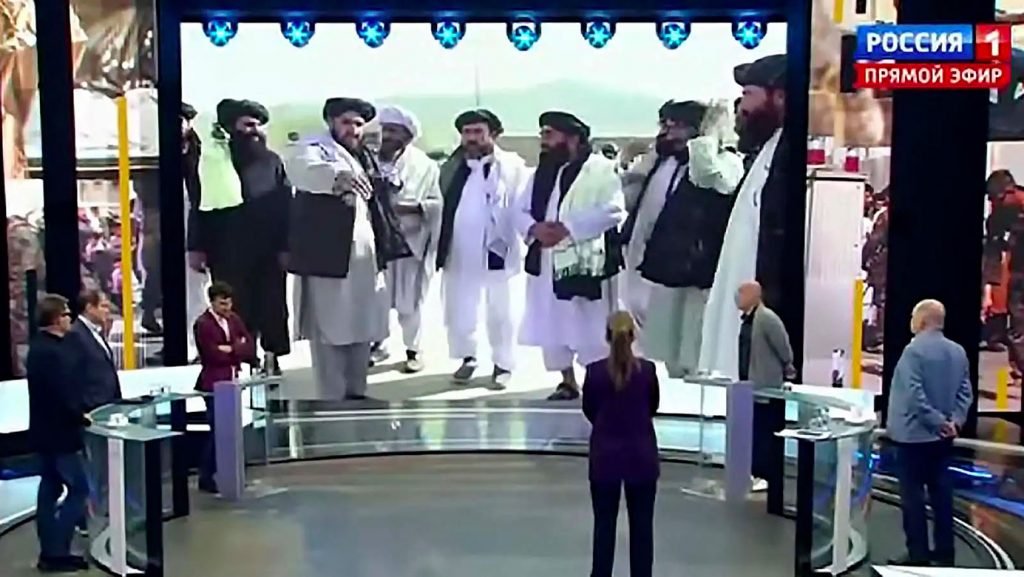
Sergei Markov, a commentator close to the Kremlin, concurs: “American allies in US-dependent regimes in many countries of the world shudder thinking of their future fate, when, due to a change of circumstances, the United States will abandon them too. Iraq, Libya, Syria… It is not Zelensky or Poroshenko who look at these scenes with horror – their money and connections will save them. It is their assistants, their secretaries, their employees who are terrorized. They will not escape”. But not only Ukraine and Georgia have to draw conclusions from the events. England is in just as much trouble, much to the delight of Moscow commentators, who rightly consider that England is the only Western country that has still a backbone: “Britain is hysterical. How can the British, without the United States in the role of world policeman, implement their strategic plan ‘Global Britain’? It was convenient for London to manage its affairs in the shadow of American military power, and now it may have to face a threat and not get American support. Of course, Britain will continue to try to play its ‘global’ game. However, it will have to do so at its peril.”
The American withdrawal from Afghanistan offers Russia on a platter the opportunity to stir up divisions within Nato: Alexander Grushko, the Russian deputy foreign minister, stressed that the Taliban’s capture of Afghanistan was “a natural result of American policy”. He recalled that NATO has always prided itself on the collegiality of its decisions, but in the current situation, according to Grushko, “this famous transatlantic unity has shown its true colors” after the United States unilaterally decided to withdraw its troops from Afghanistan. The Kremlin is mobilizing its creatures in the countries of the alliance and pushing them on the front line in order to deal the blows to NATO that Moscow hopes will be decisive, as shown in an analysis by the aforementioned Russtrat Institute, signed by Vladimir Kornilov and entitled: “There will be significant changes: what awaits Europe after the loss of its master”. According to Kornilov, the European media and politicians are violently attacking America. […] And only a few admit that this is a defeat for the whole West.
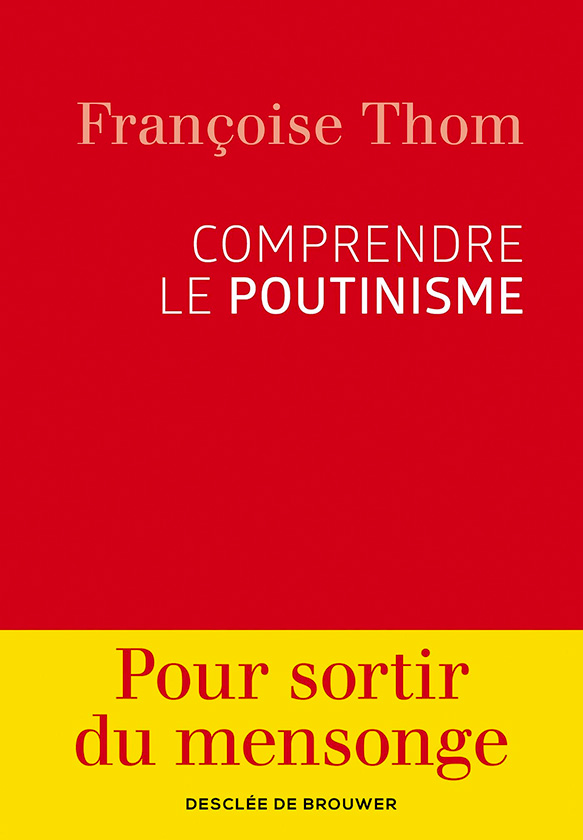
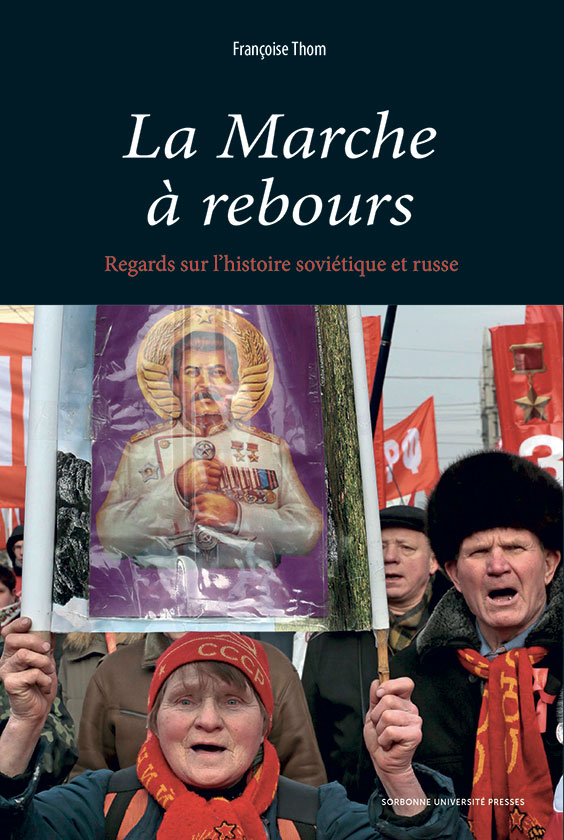
The strongest criticism of the North Atlantic Alliance came from Czech President Milos Zeman. In an interview with the online newspaper ParlamentniListy.cz, without trying to be diplomatic, he bluntly stated, “After leaving Afghanistan, the Americans have lost their prestige as a world leader, and the very purpose of NATO is now in doubt.” “NATO has lost considerably,” Zeman repeatedly stressed, adding that the cost of maintaining the alliance is “a waste of money.” […] Another European politician, who is not yet classified as a “friend of Putin” — the leader of the German Christian Democrats and potential chancellor Armin Laschet — said, “This is NATO’s biggest defeat since its creation. Landmark changes await us.” The U.S. attitude toward its allies, treated as “powerless provinces”, was also pointed out by Slovak analyst Eduard Khmelar, who said, “The U.S. has long behaved like an empire. Like any empire, it has its own interests in the world, but no global responsibility […]” The Slovak bluntly calls the American ambassador “the governor of the empire” and agrees with Czech President Zeman that the NATO budget is a black hole into which substantial European budgets are being sucked in a totally useless way. Khmelar’s judgment is unflattering for NATO: “The failure in Afghanistan is the deepest crisis of the Alliance in its history. Even the Soviets left that country with dignity, waving their banners, when we ran away like panicked dogs.” As a result, the Slovak proposes to abandon the old approaches of the Cold War period and build a new global security architecture, putting an end to senseless “imperial wars.” Khmelar does not even hide the fact that he intends to include Russia in this new system; Moscow has already proposed this idea several times in its time.
Another Russtrat analysis by Igor Kazenas (September 1, 2021), titled “America’s retreat doesn’t stop with Afghanistan — it’s Europe’s turn — the first to fall is Ukraine and its ‘independent Ukraine’ project,” elaborates on these perspectives:
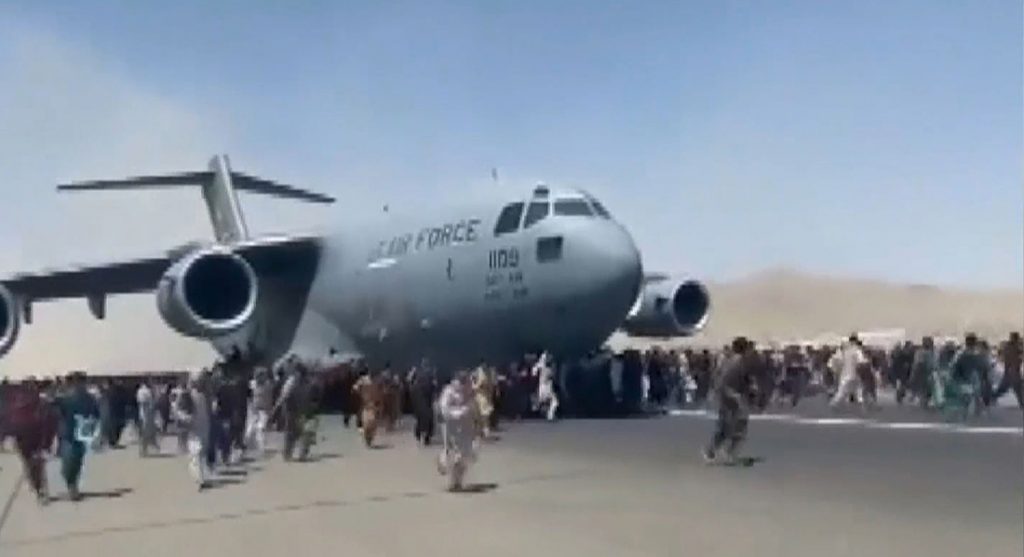
The precipitous flight of Americans from Afghanistan is not the only place on the planet where America is falling apart. It is happening progressively ‘on all fronts’ and on many levels. But in this particular case, we have seen a natural process similar to an avalanche that has passed its point of no return, highlighting the essence of the American approach and real opportunities in this part of the Eurasian continent. […] Thus in Eastern Europe, the former hegemonic power is trying not to lose face. The handing over of the keys to this area to Berlin marks its withdrawal, as evidenced by the signing of the ‘Washington Declaration’ on 21 July between Biden and Merkel, during the German Chancellor’s visit to Washington. The appointment of a new ‘principal ally and friend’ during Biden’s Euro-tour was a logical consequence. The abandoned “English poodle” is foaming with rage. […] The “Three Seas Initiative” [a project launched in 2016, also known as the Baltic, Adriatic and Black Sea Initiative, is a forum of eastern European Union and Central European countries, aims to create a north-south dialogue on a variety of issues affecting member states, Austria, Bulgaria, Croatia, the Czech Republic, Estonia, Hungary, Latvia, Lithuania, Poland, Romania, Slovakia and Slovenia] is under German tutelage, and now these purely Polish ghostly fantasies are under German control and funding. […] Further east, Ukraine has been handed over to the Germans […].
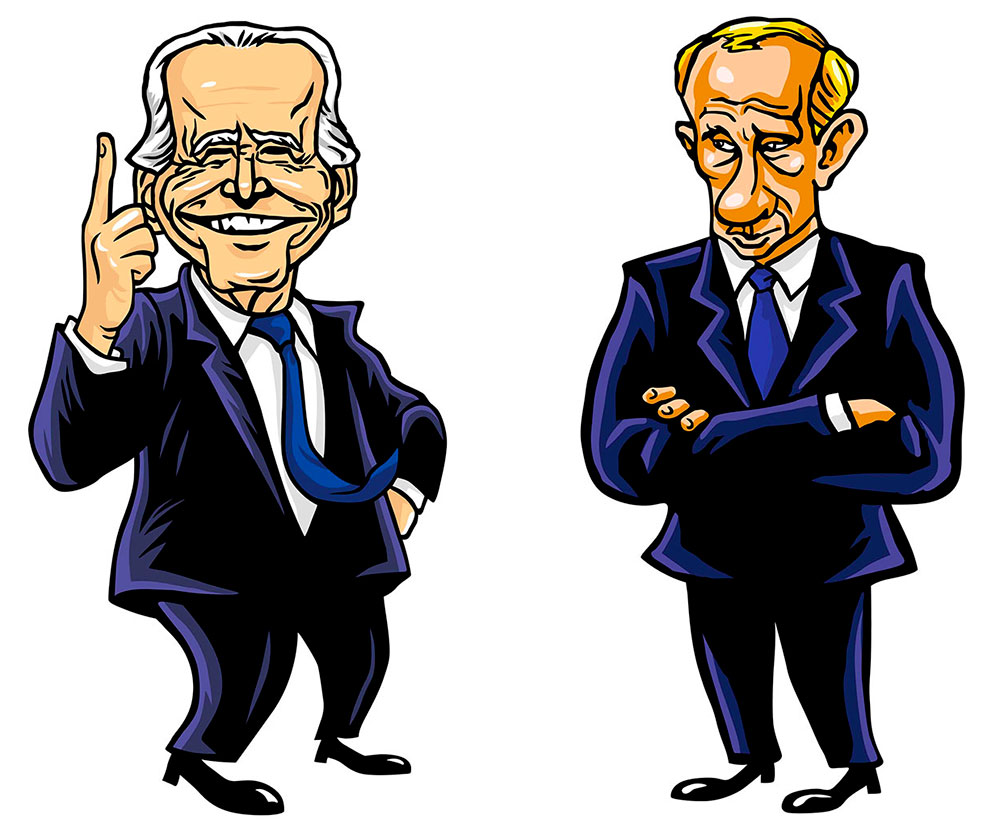
The Americans now have the stated goal of forcing Ukraine to fulfill the Minsk agreements […]. The serious adults of the West have committed themselves to force the young fool to do his homework, which he refuses to do. And we are already beginning to be able to hold them to account. This is also not without advantage for Russia and strengthens its position for the entire ongoing negotiations. And in the future, this may untie our hands, but let’s not anticipate. […] For the Kremlin, all scenarios have their advantages. It can only be happy that Ukraine has been turned over to the Germans. Germany is our natural geopolitical pillar in Europe. Of course, we are still a long way from the idealistic view that was held by high-ranking German national politicians in the early 2000s, who suggested that “at last Germany and Russia will be able to reach a whole new level of partnership, interrupted by two world wars”. There were no less expectations on our part: ours were even greater… Not insignificant is the factor of Great Britain, which has already become important, although not globally, in the mythical “Three Seas” project. The confrontation of the British with the Germans will inevitably increase, which, once again, plays into our hands. The British are pushing themselves wherever Uncle Sam pulls back.” All this ends with an optimistic observation: “In any case, we are witnessing the growing influence of Russia on the international scene. We can only observe the more tangible pressure of the European Berlin-Paris axis on Kiev to implement the Minsk agreements. The Europeans are even making strict demands and issuing ultimatums. Our power and international weight are increasing and we are seeing an intensification of attempts by foreign partners to fulfill their obligations to us. Extrapolating the existing vector to the future, we can say with certainty that even in the case of the total inability of our partners to solve these problems [i.e. forcing Ukraine to surrender], we are able to solve them ourselves. Using the plans of the General Staff.”
In short, this is the time to act, including militarily:
Russia must urgently recognize the LPR and DPR [the separatist entities of Donetsk and Luhansk], as well as do everything necessary to eradicate Nazism in Ukraine. This is no longer the time to take the gloves off with peoples who are not our brothers. Likewise, we have no time to waste in persuading the authorities of Kazakhstan, Uzbekistan, Tajikistan and Kyrgyzstan to bring into line their fellow citizens who are infatuated with religion and Russophobic nationalism. If they don’t, the guns will talk.
The Kremlin considers that the defeat of the West will be complete and irreversible once Moscow has installed its satrap in Kiev and China has occupied Taiwan. The Afghan debacle is only a promising step towards the realization of this ultimate design.
(1) Historian, emeritus lecturer at the University of Paris Sorbonne. Studies of classical letters, spent 4 years in the USSR in 1973-1978, agrégée in Russian, teaches the history of the USSR and international relations at Paris Sorbonne.
Works : Beria, le Janus du Kremlin, Editions du Cerf, 2013 Comprendre le poutinisme, Desclée de Brouwer, 2018. La Marche à rebours, Sorbonne Université Presses (June, 2021)
See also : « Les conséquences du retrait américain d’Afghanistan vues de Russie : l’impact en Europe, le sort de l’OTAN » by Françoise ,Thom in DeskRussie (2021-09-08)










